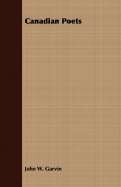Canadian Poets

Resumen del libro
Editors Foreword ALMOST simultaneously with the Great War, has come a renaissance of Poetry, which is significant of that law of balance by which the heart turns instinctively from the terror and confusion of devastating human emotion, to the purity of a clearer and serener air. Poetry, at its height, implies beauty and the driving force of passion. It implies also the austerity and emotional restraint which means spiritual strength, and it is, primarily, to the inherent strength of this Art which faces and pictures the truth in nature and human nature, that the people have turned in times past and will turn in times to come. This volume contains brief but inclusive records of fifty men and women to whom song has come first. Many of their poems are indigenous to the soil, vitally, healthfully Can- adian others are tinged with the legendary and mythical lore of older lands but all are of Canada, inasmuch as the writers have lived in this country, and have been influenced by its history and atmosphere at a formative period of their lives. Among them, one ventures to think, there are world voices. A recent reading of the published verse of Bliss Carman, has convinced me that he must soon be more widely recognized as a poet of preeminent genius. He is greater than some of more extended fame for the reason that his poetry expresses a nobler and more comprehensive philosophy of life and being. Bliss Carman has achieved more greatly than many others of this generation, because he has realized more fully than they that the Infinite Poet is constantly and eternally seeking media for expression, and that the function of a finite poet is to steadily improve the instrument, to keep it expectantlyin tune, and to record the masterpieces. It seems strange to look back upon the time thirty-three years ago when a successful Ontario educator felt justified in the statement that Canada had no national literature worthy of the name, and never would have until the country became an independent nation, with no shackling colonial ties. At the very moment that such a declaration and prophecy was made, Roberts had begun his brilliant career as a writer, Isabella Valancy Crawford was preparing for publication Old Spookses Pass, Malcolms Katie, and Other Poems, Charles Mair was thinking out the construction of his great drama, Tecumseh, and Lampman, Campbell, the two Scotts, Seranus and Bliss Carman were ambitiously fingering the chords. And to-day Canadians have no doubt of their national independence, are prouder than ever of their integral position in the British Empire, and have a school of verse, characterized by freshness, spontaneity, originality of theme and good artistry, that would reflect distinction on the literary genius of any civilized people. The criticism that most of the poetry of our day seems to have buried itself in obscurity, is not applicable to the verse of Canada. Even though much of it is highly imaginative and descriptive and sometimes profoundly reflective, the work of Canadian poets is exceptionally free of obscurity, or carelessness in artistic utterance. Love of Nature has been their chief source of inspiration but themes based on love of humanity and mans kinship with the Infinite Life, have steadily gained of late in number and potency, and the Great War must necessarily arouse a more intense interest in human and divine relationships. About thirty of thearticles in this volume, revised and im- proved for book publication have appeared during the last three years in the Public Health Journal, of Toronto...








